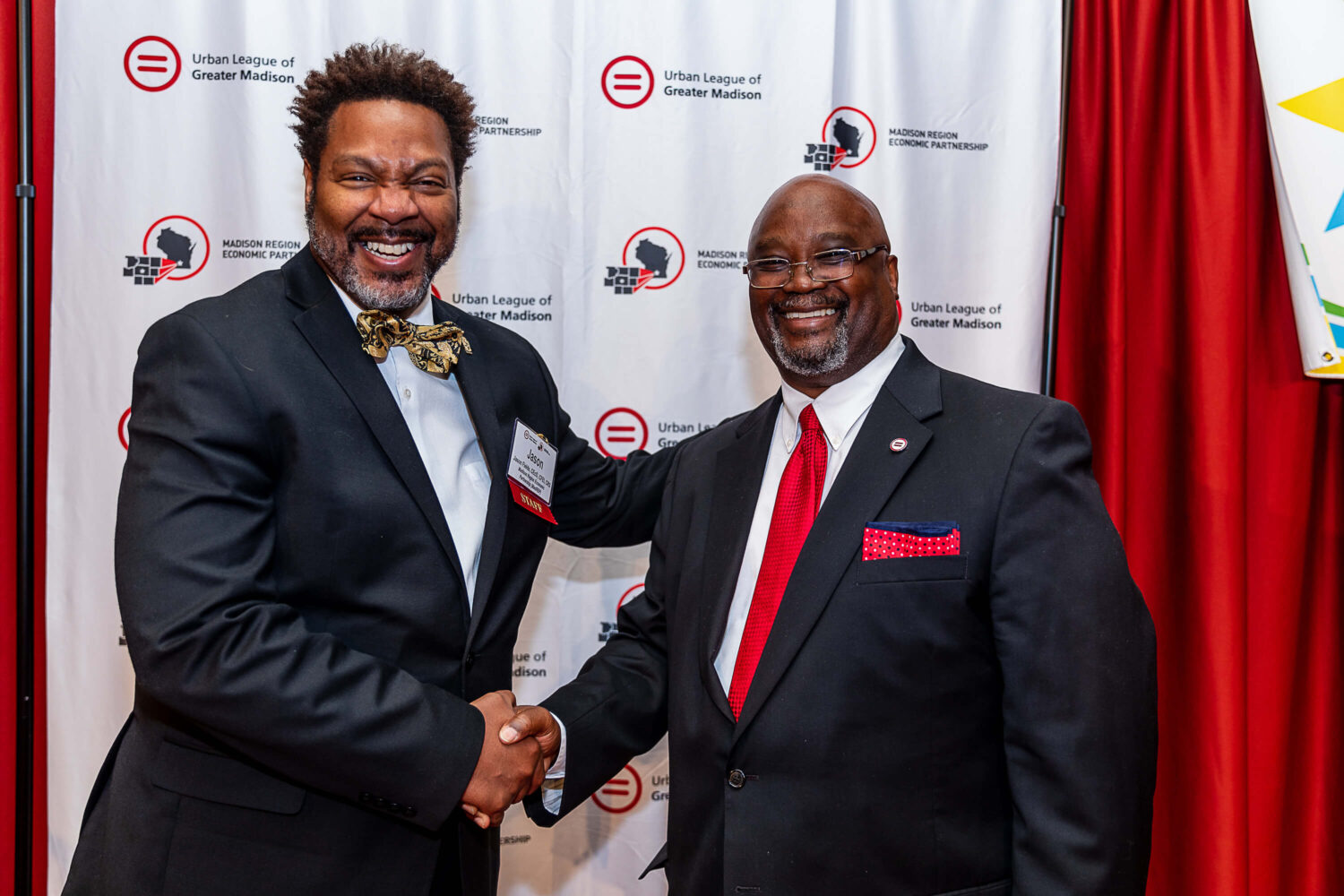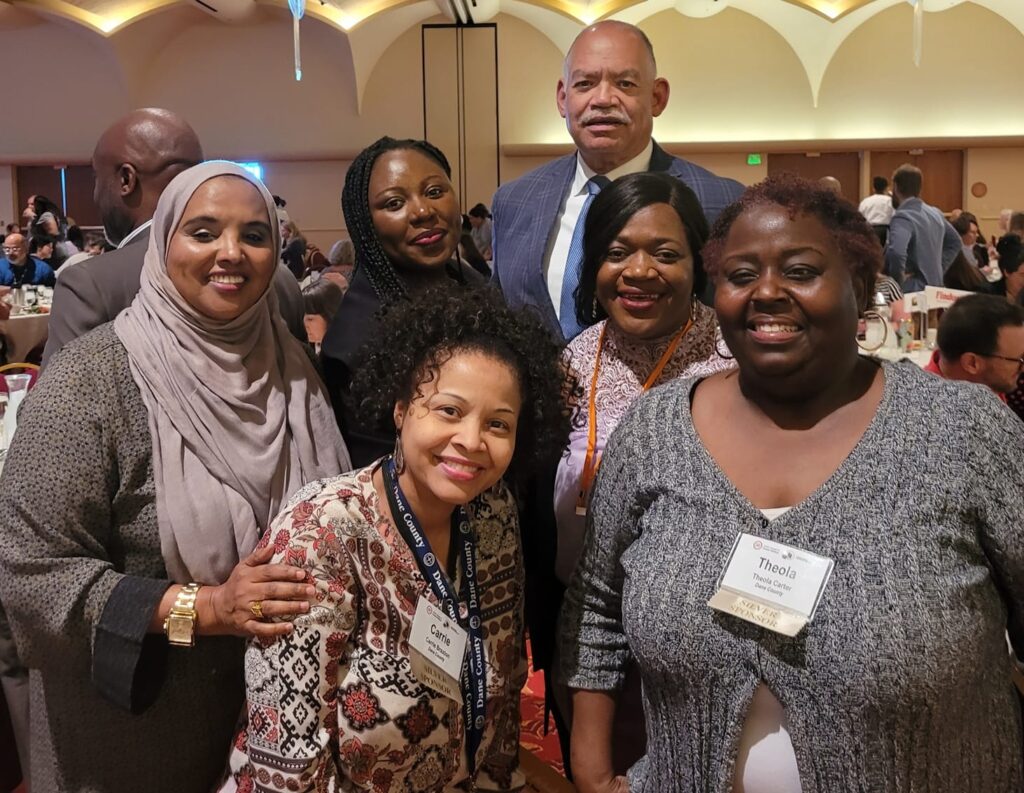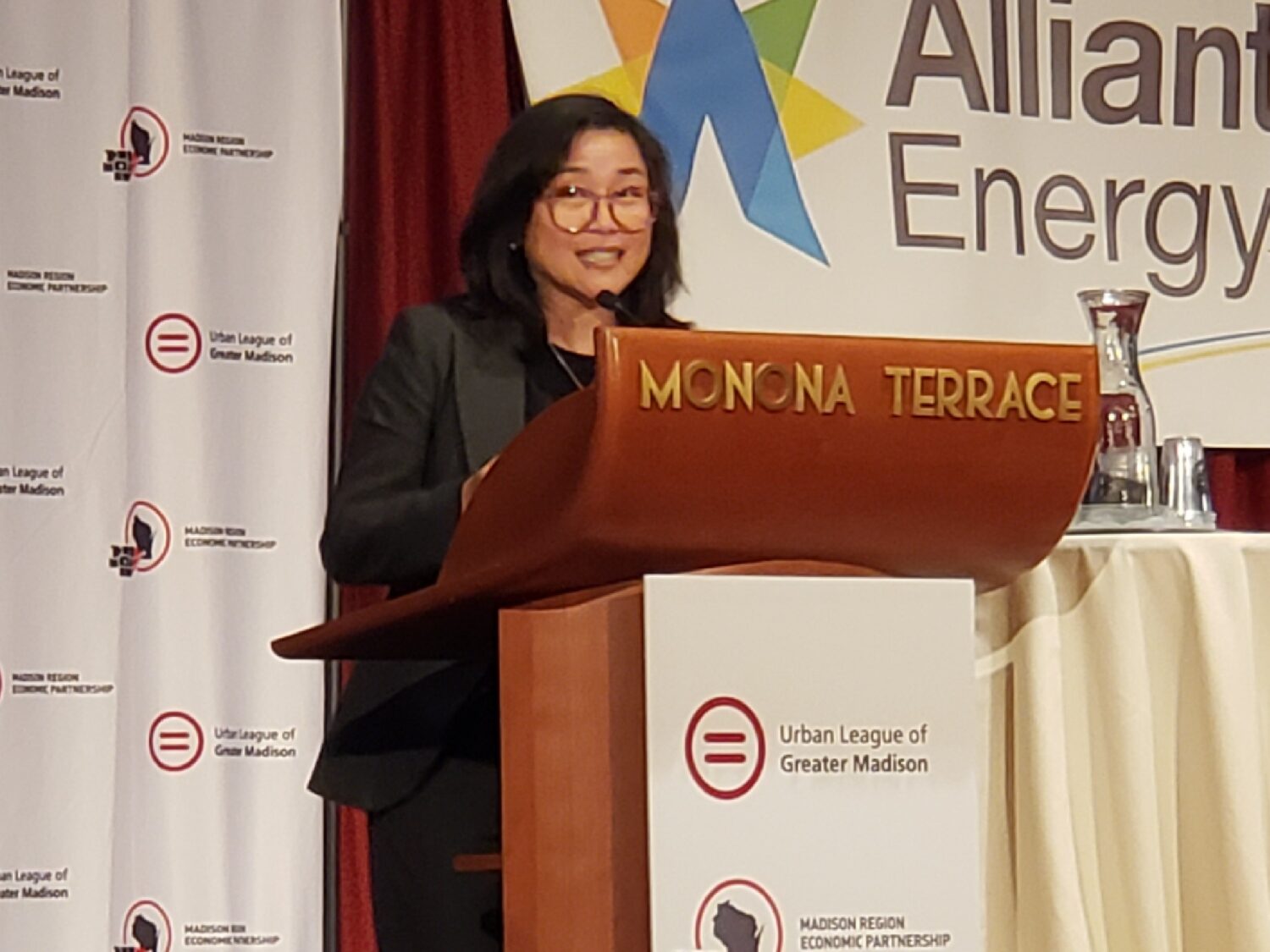
The Urban League of Greater Madison and Madison Regional Economic Partnership came together to co-host the 10th annual Madison Region’s Economic Development and Diversity Summit at Monona Terrace on May 10 in Madison. The summit focused on expanding opportunity and diversity in the area by discussing how to entice people from across the country to choose Madison as their work location.
Dr. Ruben L. Anthony, president and CEO of Urban League of Greater Madison, and Jason M. Fields, president and CEO of Madison Region Economic Partnership (MadREP), opened the event as both of their organizations have played important roles in increasing opportunity and access for people of color in the area. Fields spoke on the Advance Now 2.0 Strategy, a MadREP report and blueprint for continued economic growth in the area, that was released around four years ago.
“It’s for all of us to answer some of those economic questions,” Fields said to the room. “How do we become better? And how do we become better for everybody in our eight-county area? That includes rural, urban, people of the BIPOC community, including everybody. What do we need to do to make sure that this is a thriving place? As Ruben said earlier, what do we want to do to make sure that when people look at our region, with the choice between the North Carolina Research Triangle, Boston, or South Carolina, they choose us? The strategy is going very well.”

Laura Dresser, UW-Madison Clinical Associate Professor and Associate Director at the Center on Wisconsin Strategy(COWS), gave the first opening speech for the morning plenary session. Dresser spoke on Wisconsin’s current labor and economic state as well as the racial inequalities present throughout it. Jason R. Thompson, co-founder of CAPE Inclusion, importantly followed up with a discussion on diversity, equity, and inclusion, an area that if improved, could lead to a stronger workforce.
Breakout sessions at the summit included two presentations on neurodiversity in the workplace by Haley Moss, and improving the quality of life in the midwest for rejuvenation by Amanda Weinstein. These were joined by a panel on youth to adult apprenticeship moderated by Bridgett Willey with panelists Hugh Wing, Seth Lentz, Mitch Staroscik, and Liz Pusch. As well as an additional panel on what talented workers are looking for moderated by Mark Richardson with panelists Clara Tavarez, Angela Arrington, Erin Hillson, and Grace Fernando.
Luncheon speaker Troy A. LeMaile-Stovall, CEO of TEDCO, suggested a shifting of framework for the audience, as he also discussed the importance of technology and innovation in the workforce as we develop both locally and globally.
“Let us not lose who the real competition is,” said LeMaile-Stovall. “There’s some other countries that I can name that are sitting and watching us fight amongst our 50 states in our different regions. They’re watching us fight amongst ourselves over some resources, and they’re thinking about how they think as a country. This is not trying to make a political statement, but we’ve got to rethink how we think about this notion of economic development. We have got to think about it in a much more holistic way.”
The last keynote speaker gave perspective both as a former worker of many odds-and-ends type jobs, and as an expert in DEI. Lela Lee, actress and creator of “Angry Little Asian Girl,” gave insight into how employees may feel in contemporary workplace environments. With issues such as sexism, racism, and other discriminations in the workplace driving potential employees away, a cycle of inability to build diverse communities follows. Lee spoke to the importance of not only attracting and keeping a diverse workforce through combating those adverse experiences in the workplace, but also in supporting diverse communities in the city itself.

“If Madison wants to be a Plan A for good people, Madison needs to provide companies with healthy work cultures, and a vibrant community to live in,” Lee said. “It sounds like the job sectors in greater Madison are amazing, but a pattern has emerged that is noticeable. People vote with their feet, and they leave to other metropolitan destinations like Seattle, the Bay Area, Denver, Dallas, Phoenix, and D.C. This made me wonder, are there blind spots in the workplaces? Without offending anyone, I think people for the most part are living out a blueprint that we were given from the generation before.”
Anthony and Fields closed out the event with words of encouragement for sustained commitment to economic and social development in the Madison area and beyond.
To learn more about Madison Region Economic Partnership and the Advance Now 2.0 Strategy and report, visit the MadREP website here. For more about the Urban League of Greater Madison, visit their website here.



